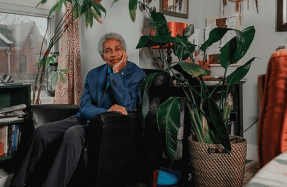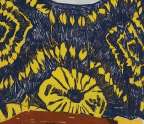
In 2012, London-based organisation Iraqi LGBT estimated that 750 LGBTQ+ people in Iraq had been killed since 2003. And noting many accounts of persecution – including so-called “honour killings” by the militia and family members, as well as extortion, torture, and extra-judicial killings by the Iraqi Security Forces (ISF) – a 2012 report from the UN High Commissioner for Refugees advised that “LGBTI individuals are likely to be in need of international refugee protection.” Following the 2003 invasion and occupation of Iraq by a United States-led coalition, the situation for queer Iraqis had deteriorated exponentially. As LGBTQ+ people – or even “effeminate men” perceived to be LGBTQ+ – were driven out of their homes with nowhere to hide, the Western-backed government not only turned a blind eye, but apparently played a role in perpetuating this violence.
This was the hostile environment in which Amir Ashour first started advocating for the rights of the LGBTQ+ community in Iraq. But, after experiencing two arrests and further threats of violence, he was forced to seek asylum in Sweden. From here, in 2011, he began IraQueer – now Iraq’s leading LGBTQ+ organisation. On a mission “to empower Iraqi LGBT+ individuals and to advocate for LGBT+ rights in Iraq”, IraQueer functions across education, advocacy, and direct services – sharing multilingual resources, providing safe housing, and engaging with international bodies to further LGBTQ+ human rights.
While the movement continues to grow in Iraq, the situation for LGBTQ+ people has not improved since Ashour first started organising. Although the British colonial era law criminalising homosexuality within the Iraqi Penal Code was repealed in 2003, a range of vague provisions leave room for discrimination and prosecution of LGBTQ+ individuals. And many believe that homosexuality is punishable under Shari’a law. Queer Iraqis still face daily threats to their lives. In February 2022, a Kurdish trans woman, Doski Azad, was shot dead by her brother. And in Summer 2022, both the Iraqi and Kurdish Parliaments proposed a law that would outlaw homosexuality.
Within a shifting climate for LGBTQ+ individuals worldwide – where increased awareness clashes with a rise in instability, displacement, and violence – how do advocates and community organisers continue to work towards a better and safer future for all, while also taking care of one another? We sit down to discuss with Amir Ashour, winner of the GAY TIMES Honour for International Community Trailblazer.
To begin with, could you please






